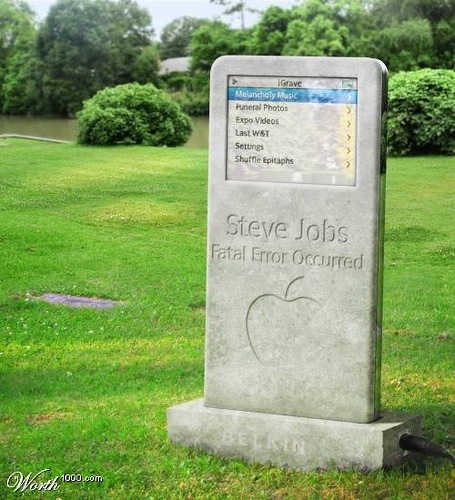How God proves his existence
The call to prove God’s existence is a common challenge put to Christians. And fair enough. If you told me there was a world-wide flood going to wipe me away and my only hope for survival was to leave everything I knew and get into this giant boat sitting in the middle of a field, I would probably ask for some proof that you were right, and not just crazy. Especially, if I couldn’t see any growing storm clouds or at least, if I had never experienced a flood. The request for proof is understandable. However, at times, it is still foolish. There may be a flood coming and the fact that you can’t see the clouds and you lack experience of floods, doesn’t change reality. You just may be blind, or inexperienced.
So the question remains. If requiring proof of God’s existence is understandable, then how does God meet that basic need?
IS PROOF RELEVANT?
Some Christians make the point that you can’t really prove anything and so the expectation of proof is unrealistic. If you required scientific 100% proof for every decision, you wouldn’t do anything. You wouldn’t sit on a chair because you couldn’t prove it won’t break, you wouldn’t eat food because you couldn’t prove it wasn’t laced with poisonous iocane powder, etc. Basically, day to day, we live by faith. But it’s not blind uninformed faith. It’s faith in our experience and faith in what people tell us and faith in our understanding of the world. We make decisions based on what we are convinced of. And so, for all intents and purposes, that is what most people mean when they say they want “proof” of God.
There are some hard-core atheists that expect that Christians should provide scientific proof of God’s existence and acknowledge that even if all the weight of the evidence pointed towards God’s existence, they would still reject the idea of a God, simply because if there is any other possible explanation then that is preferable (I have heard Peter Singer express this view). This sort of blind commitment to atheism is to me a complete rejection of logic, science and common sense and in the end, a lot more “religious” than the most committed fundamentalist there is.
So should we throw out the word “proof” altogether? Well, I don’t think so. It’s such a part of our cultural language. If you want to return clothes you have to provide “proof of purchase”. If you want to buy alcohol you have to show “proof of age”. If you want to get a passport you need “proof of ID”. If you go to court you are innocent until “proven” guilty. Maybe we just have to think about the way we define “proof” and see if we can apply that to the existence of God.
PROOF #1 – JESUS’ RESURRECTION
I started thinking about writing this blog after I remembered how the bible uses the term “proof”. In Acts 1:3 it says, “After his suffering, [Jesus] showed himself to these men and gave many convincing proofs that he was alive. He appeared to them over a period of forty days and spoke about the kingdom of God.” and then in Acts 17:31 “For [God] has set a day when he will judge the world with justice by the man he has appointed. He has given proof of this to all men by raising him from the dead.”
Both of these passages refer to the resurrection of Jesus as the clearest and most convincing proof of God. The resurrection vindicates all that Jesus taught about himself and about God and is the best evidence for the reality of God and the truth of the gospel. Many philosophers and theologians, both secular and Christian, have realized that the historical truth of the resurrection is the cornerstone of Christianity. If it didn’t happen, then Christianity completely falls apart, but the fact that it did happen proves Christianity is true.
Now this is clearly not the sort of proof that a scientist would consider valid. It is not reproducible and therefore can not be tested. It happened once, but if it truly did happen then once is enough. The resurrection is such an unbelievable event that Jesus knew that his disciples needed proof of its reality. He showed himself to them and allowed them to physically touch him and see him interact with physical things (like eating fish) to prove that he was physically and tangibly alive. This was proof to them and the message that Jesus was alive was the driving force behind the explosion of Christianity in the first century. All of the eyewitnesses to the resurrected Jesus went to their graves (mostly through murder and execution) professing that the resurrection was a true event.
This event happened. The proof that it happened was shown to the disciples by Jesus himself. They in turn wrote down their eyewitness account for us to read and be convinced by. Now this may not sound like a convincing proof to you but it’s like the question, “Can a man walk on the moon?”

Think about that question. How would you answer it? Most likely you would say “yes”. But if someone asked you to prove it you would point to the fact that man has indeed walked on the moon. Six times in fact. The first time was in 1969 and the last time was in 1972. That’s the proof. It’s happened. The answer to “can man walk on the moon?” is yes.
But why do you believe that it happened? For many (including myself) all six moon landings happened before I was born, and even if they happened when I was born, I didn’t experience it myself. The idea that man could walk on the moon is absolutely crazy and unbelievable, and yet most of us (other than the rare conspiracy theorist) believe that it 100% happened purely on the basis of the reliability on the account. We read the eyewitness accounts of the astronauts, we see the photos, we watch the video, we listen to the famous words, “that’s one small step for man…” and we are convinced. No matter how unbelievable it may seem, we can confidently say that man can walk on the moon and it has been proven.
I hope you can see where I’m going with this example. I think in the same way that we can say man has walked on the moon, we can say that Jesus rose from the dead and therefore his teaching and message about the reality of God and everything else are reliable. We believe that Jesus’ resurrection has been proved by his appearances and interactions with his disciples who then went on to proclaim and record their eyewitness account of that fact. Their account is still available to us in the gospels and in the book of Acts, and it is just as reliable today as it was when they wrote it. Now some may try to argue against the reliability of the gospel accounts, but I recommend you research the topic yourself to see that they weight of evidence greatly points to their reliability (check out “The Christ Files” if you’re interested). Either way, the issue then becomes “are the accounts of the proof of the resurrection reliable”, not “is there any proof of the resurrection”. The proof is there. Like the moon landings, the resurrection happened. You can either disbelieve the accounts or you can accept them for what they are – reliable records of historical events.
Now, although the resurrection is the primary proof of God that there is, there are also two more proofs which we can personally experience that do not rely on a historical record.
PROOF #2 – EXPERIENCING GOD
The first is the experience of the Christian themselves. Now I admit that this proof is not convincing for those who aren’t Christians who are looking for proof of God before they choose Christ or not, but that doesn’t make it any less of a proof. It simply means that it’s a proof for an audience of one, which incidentally, the person asking for proof is an audience of one and often they aren’t asking that you prove God’s existence on a global universal scale. They’re just asking you to prove it to them, and so the subjective, outwardly untestable, personally experienced proof is just as satisfactory.
It’s like the old saying, “the proof is in the pudding”. This is actually a misquote. The original full saying is “the proof of the pudding is in the eating”. This makes more sense. It’s saying the reality of the pudding – it’s temperature, taste, whether it’s laced with iocane powder, etc – can only be proven when it is eaten. You could put it through the lab and test it with every scientific instrument, but the best proof of the pudding is in the eating.
This is true for God as well. I can’t speak of other Christians experience, but my experience of God is so real and tangible that it is the greatest reason why I don’t doubt the existence of God. I see and sense God’s daily interaction with me, I experience his guidance, his comfort, his joy and his strength. I notice his leadings as he directs me in life and I know through and through when I am stubbornly working against his Spirit. God’s presence is so real to me, and has been from the very day I gave my life to following and trusting Jesus, I can not deny the reality of my experience. It can be a very hard experience to explain or describe to those who do not have a relationship with Jesus, but those who have responded to the gospel often know exactly what I mean with no need for explanation.
It’s very much like trying to explain colour to a blind person. There is no language that can communicate it and there are no proofs that can convince the blind person that colour exists (other than the proof of a reliable account as mentioned earlier). You can’t prove colour to the blind, but if a blind person receives the gift of sight and looks around then you won’t need to prove colour. Colour will prove itself to the individual.
Is the proof that this person experiences any less valid simply because it can not be tested by blind people? Of course not! In some ways, my experience of God is like that. I wish my non-Christian friends and family members could experience God in the way I do. If they did, it would make believing in God’s existence a given rather than a possible option, and all arguments about which position is more logical completely null and void. As the great evangelist Billy Graham said, “I can tell you that God is alive because I talked to him this morning”.
A clear place where the Bible uses this sort of argument is in 2 Corinthians 4:3-6, where Paul says,
“If our gospel is veiled, it is veiled to those who are perishing. The god of this age has blinded the minds of unbelievers, so that they cannot see the light of the gospel of the glory of Christ, who is the image of God. For we do not preach ourselves, but Jesus Christ as Lord, and ourselves as your servants for Jesus’ sake. For God, who said, ‘Let light shine out of darkness,’ made his light shine in our hearts to give us the light of the knowledge of the glory of God in the face of Christ.”
The terrifying reality if you do not see or experience any “proof” of God, is that you may be blind and perishing in your blindness, and it will take God to shine his light in your heart, remove the “veil” that blinds you and give you “the knowledge of the glory of God in the face of Christ.” If you realize that you are in this position and you are seeking God, but you just can’t see him, then I encourage you to ask him to remove your blindness, like blind Bartemaeus in Mark 10:46-52, call out to Jesus and say, “Rabbi, I want to see.” Maybe Jesus will be merciful and reveal himself to you, giving you every bit of proof that you need.
Now, I realize a problem here. If you don’t see proof that God exists, then how can you call on God to take away your blindness. It seems a convenient argument that anyone could use. Someone could say, “Oh, you would believe in the Mighty Chicken God if you weren’t blind to his glory. Pray and ask the Chicken God to reveal himself.” Now, I’m not going to pray to a giant invisible chicken just on the possibility that he exists and the fear that I might be missing out on something if I don’t pray to him, so I don’t expect anyone else to pray to Jesus if they’re in the same position.
My encouragement is not to the person who can’t see anything, but to the one that God is already working with. God begins to remove the veil and open our eyes, and we start to see things of God and if you are in that position then I encourage you to work with God, rather than against him. Hebrews 3:7 (quoting Psalm 95) says that the Spirit of God is calling to people saying, “If today you hear his voice, do not harden your hearts”. If you hear him, then respond. If you do, you will experience the proof of God that only those who know Jesus can experience. Like the kid covered in chocolate pudding, you will be able to know for yourself the words of Psalm 34:8,
“Taste and see that the Lord is good!”
But what if you don’t hear his voice? What if you can’t see the glory of God in the face of Christ? Is there no experiential “proof” for this person? Will God’s existence ever be proved to them?
Well, the reality is, not in this lifetime.
PROOF #3 – DEATH
Scientist are often looking for experiments that are reproducible in order to prove something. Well, when it comes to God, there is one experiment like that. It’s called death. Every person who has died has without fail, come face to face with God, proving in the most real way possible that he exists. It is an experiment that is reproducible and it will work every time. If you want me to prove that God exists, then all I have to do is say, “Sure, no problem. Just die.” You may not be very obliging, but that matters very little seeing as you’re mortal and will one day partake in the experiment whether you like it or not. As Paul writes in Romans 14:10-12,
“We will all stand before God’s judgment seat. It is written: `As surely as I live,’ says the Lord, `every knee will bow before me; every tongue will confess to God.’ So then, each of us will give an account of himself to God.”
and in Hebrews 9:27 it says,
“Man is destined to die once, and after that to face judgment.”
Everyone will stand before God, either as his friend or his enemy. Either forgiven or still under judgement. Everyone will see and know that God is real. The proof will be in the pudding for everyone. Of course, like my last point, this “proof” has a problem as well. The problem isn’t that some can experience it and others can’t – everyone will experience this one – the problem is obviously that on this side of death, we can’t access the results of the experiment. What we really need is someone to have died (really died, rather than just had a near-death experience) and then come back to life so that they can set the record straight about life and God and everything else. Of course, they would have to show us convincing proofs that they had actually risen from the dead, and then we would have to have some reliable record of what this person said so that all people for all time could know the proof that God exists as well…
Gee, that would be sweet…
CONCLUSION
In the end, this blog is not written to non-Christians who are looking for proof of God. It is written to Christians, who have for the most part, gotten into the habit of avoided using the word “proof” when it comes to God. Or, on the other hand, Christians focus on all the evidence in nature and science to show proofs of God. As much as I think that all those are wonderful evidences for God, I don’t think they are good enough. They are not proof.
In my life there are only three major proofs of God: The resurrection of Jesus, my own taste of God’s goodness and the experience of meeting your Maker when you die. One is in the past, one is in the present and the last one is in the future.
I hope you see and experience the first two, before you experience the third.
(2696)









